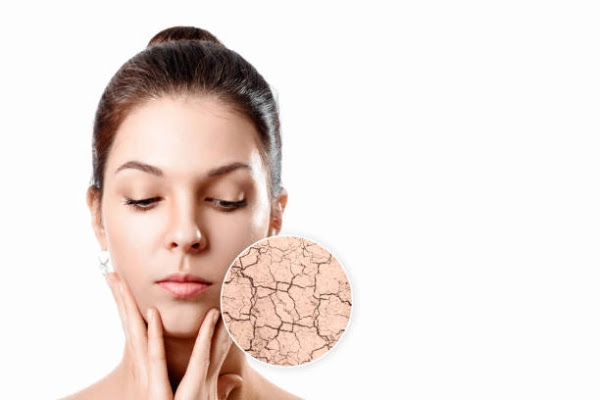Understanding Dehydration
Impact on Skin Health
Introduction
Dehydration is a common condition that occurs when the body
loses more fluids than it takes in, leading to an imbalance in the body's
hydration levels. While dehydration can affect various organs and systems in the
body, its effects on the skin are particularly noticeable. In this
comprehensive guide, we'll delve into the causes and symptoms of dehydration,
its impact on skin appearance, and effective strategies for addressing
dehydration to maintain healthy, radiant skin.
Understanding Dehydration: Dehydration occurs when the body
loses more fluids than it takes in, leading to a decrease in blood volume and
inadequate hydration of cells and tissues. This can happen for various reasons,
including inadequate fluid intake, excessive sweating, diarrhea, vomiting,
fever, or certain medical conditions such as diabetes or kidney disease.
Dehydration can affect people of all ages, but it's especially common in hot
climates, during strenuous exercise, or when experiencing illness.
Effects of Dehydration on Skin Appearance:
- Dryness:
One of the most noticeable effects of dehydration on the skin is dryness.
When the body is dehydrated, it prioritizes vital organs over the skin,
leading to reduced moisture levels in the skin's outermost layer
(epidermis). This can result in dry, rough, or flaky skin, especially in
areas prone to dryness such as the hands, elbows, knees, and feet.
- Dullness:
Dehydrated skin often appears dull and lackluster due to decreased blood
flow and oxygenation. Without adequate hydration, skin cells become less
efficient at performing their functions, leading to a buildup of dead skin
cells on the surface. This can make the complexion look tired, sallow, and
less radiant than usual.
- Fine
Lines and Wrinkles: Dehydration can exacerbate the appearance of fine
lines and wrinkles, making them more pronounced and noticeable. When the
skin lacks proper hydration, it loses elasticity and resilience, leading
to the formation of lines and creases, especially in areas prone to aging
such as the eyes, forehead, and mouth.
- Increased
Sensitivity: Dehydrated skin is more prone to irritation, sensitivity, and
inflammation due to its compromised barrier function. When the skin lacks
moisture, its protective barrier becomes weakened, allowing irritants,
allergens, and environmental pollutants to penetrate more easily. This can
lead to redness, itching, burning, or stinging sensations on the skin.
- Accelerated
Aging: Chronic dehydration can accelerate the aging process and contribute
to premature aging signs such as fine lines, wrinkles, and sagging skin.
Without proper hydration, the skin loses its ability to regenerate and
repair itself, leading to increased collagen breakdown, elastin
degradation, and oxidative stress. Over time, this can result in a loss of
firmness, elasticity, and youthful appearance.
Effective Strategies for Addressing Dehydration:
- Increase
Fluid Intake: The most effective way to address dehydration is to increase
fluid intake and maintain adequate hydration levels throughout the day.
Aim to drink at least eight glasses of water per day, or more if you're
physically active, in a hot climate, or experiencing illness. You can also
hydrate with other fluids such as herbal tea, coconut water, electrolyte
drinks, or water-rich fruits and vegetables.
- Moisturize
Regularly: Moisturizing is essential for replenishing moisture and
restoring hydration to the skin. Choose hydrating moisturizers that
contain ingredients such as hyaluronic acid, glycerin, ceramides, and shea
butter to lock in moisture and prevent water loss from the skin. Apply
moisturizer generously to damp skin after cleansing to seal in hydration
and keep the skin soft, supple, and hydrated throughout the day.
- Use
Humidifiers: Using a humidifier in your home or workspace can help
increase indoor humidity levels and prevent moisture loss from the skin.
Humidifiers add moisture to the air, creating a more comfortable
environment for your skin, especially during dry winter months or in
air-conditioned spaces. Place a humidifier in your bedroom or living room
to maintain optimal humidity levels and prevent dehydration of the skin.
- Limit
Hot Baths and Showers: Hot water can strip the skin of its natural oils
and exacerbate dehydration, especially if you bathe or shower frequently.
Limit the use of hot water and opt for lukewarm or cool water instead to
cleanse the skin gently without causing dryness or irritation. Keep
showers short and avoid harsh soaps or cleansers that can disrupt the
skin's natural barrier.
- Protect
Against Environmental Factors: Environmental factors such as sun exposure,
wind, cold temperatures, and pollution can exacerbate dehydration and
compromise skin health. Protect your skin from environmental stressors by
wearing sunscreen daily, applying a protective barrier cream or
moisturizer, wearing protective clothing and accessories, and avoiding
prolonged exposure to extreme weather conditions.
- Incorporate
Hydrating Skincare Ingredients: Incorporating skincare products containing
hydrating ingredients can help restore moisture and replenish hydration
levels in the skin. Look for products containing hyaluronic acid,
glycerin, ceramides, squalane, and botanical extracts known for their
hydrating properties. These ingredients attract moisture to the skin, lock
in hydration, and improve the skin's overall moisture balance.
- Adjust
Skincare Routine: Adjust your skincare routine based on seasonal changes,
skin type, and specific concerns to address dehydration effectively.
During colder months or in dry climates, use richer, more emollient
moisturizers and hydrating serums to combat dryness and prevent moisture
loss. In warmer months or in humid environments, opt for lightweight,
oil-free moisturizers and hydrating mists to keep the skin hydrated without
feeling heavy or greasy.
Conclusion
Dehydration can have a significant impact on skin health and
appearance, leading to dryness, dullness, fine lines, increased sensitivity,
and accelerated aging. By understanding the causes and symptoms of dehydration
and implementing effective strategies for addressing it, you can maintain
optimal hydration levels and achieve healthy, radiant skin. Increase fluid
intake, moisturize regularly, use humidifiers, limit hot baths and showers,
protect against environmental factors, incorporate hydrating skincare
ingredients, and adjust your skincare routine to meet evolving skin needs. With
proper hydration and skincare, you can nourish your skin from within and
restore its natural radiance and vitality.
